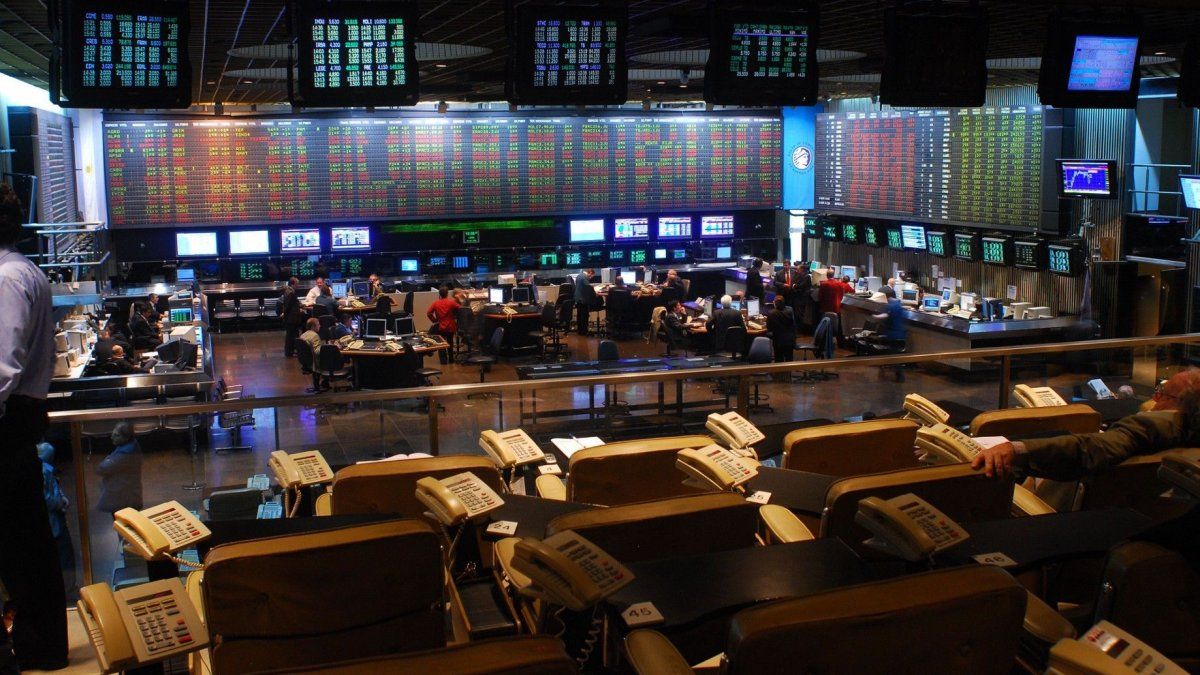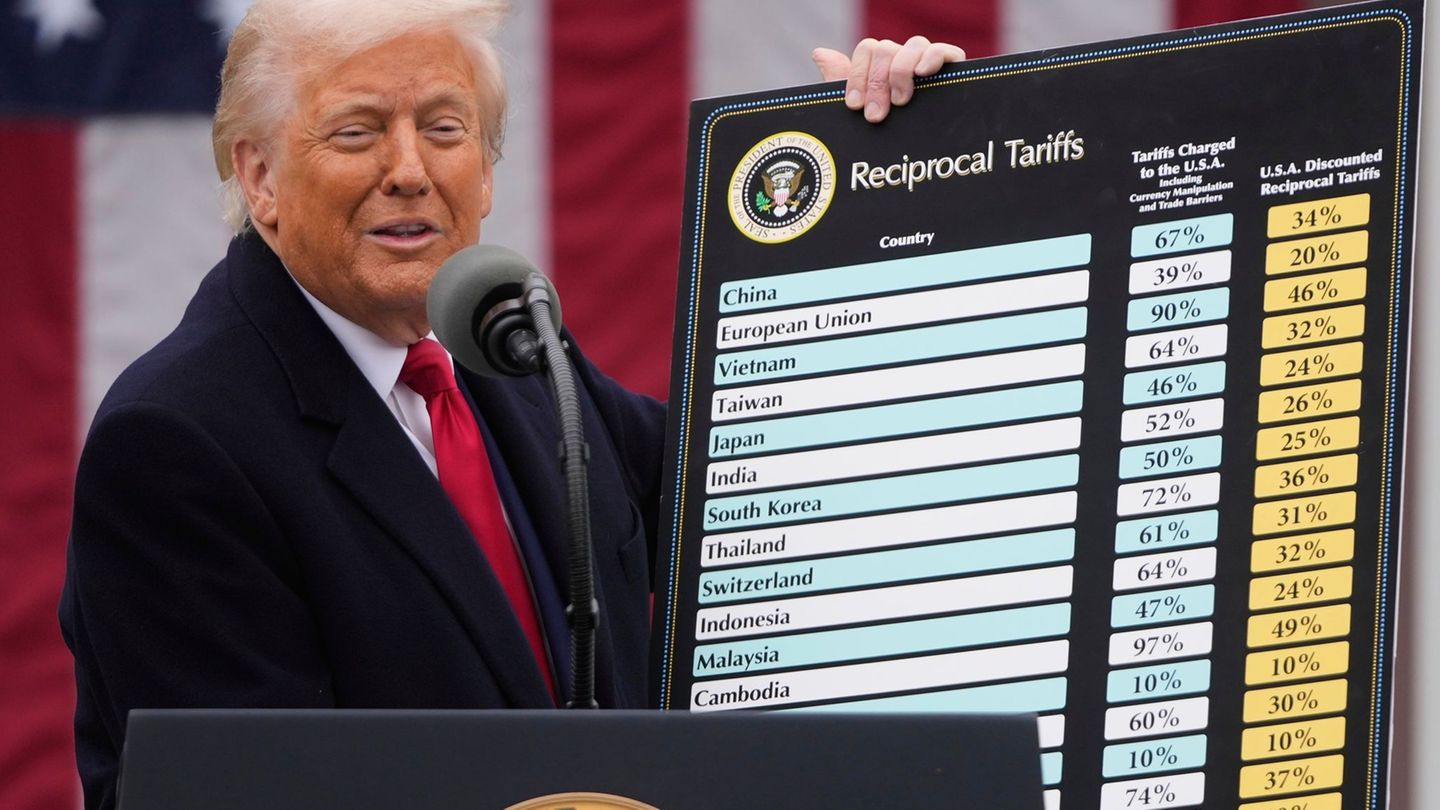In a day of panic and global uncertainty due to the crisis that caused the fall of the Silicon Valley Bank (SVB) in the US, the dollar bonds operate with the majority of strong falls (some reach up to 9.7%) this Monday, March 13, before which Argentine country risk shoots up to a maximum in several months. More moderate is the fall of Argentine shares in Wall Streetwhich yield up to 4.3%, while the S&P Merval loses almost 2%.
With a very high aversion to risk assets, due to the repercussions that the bankruptcy of the SVC may have on the financial system, the stress indicators of the financial markets began to operate with strong volatility this Monday, causing investors to rethink the outlook for US interest rates, triggering the biggest bond rush since at least 2008.
Learn more – Follow the price of the blue, official, CCL and MEP dollar in Argentina
Startup-focused bank SVB last week became the largest entity to fail since the 2008 financial crisis, sending shock waves through world markets. For this reason, the US president, Joe Biden, went out to try to bring calm to the markets: he said that will pledge to do whatever is necessary in the face of the banking crisis, whose bankruptcy of SVB forced regulators to intervene with emergency measures.
Under this scenario, Argentine bonds recorded, in specific cases, falls of up to almost 10%, led by Global 2038 (-9.7%), Global 2041 (-7.4%) and Global 2046 (-4.7%) . Different was the performance of the bonars, which even operated on the rise: Bonar 2035 gained 1%; while the Bonar 2041 rose 0.4%.
Indeed, The Argentine country risk measured by the JP Morgan bank shot up 4.7% to 2,350 basis points, after touching 2,444 units at the opening of the market, a level not seen since last November.
“The collapse of the banks Silvergate Capital and Silicon Valley Bank hit risk assets, of which the Globals are a part,” pointed out from StoneX.
After the US authorities intervened to limit the consequences of the sudden bankruptcy of Silicon Valley Bank, Expectations that the Federal Reserve will be aggressive with monetary policy to curb inflation sank on Monday in the market. In fact, Goldman Sachs said it no longer expects the Federal Reserve to raise rates at its meeting next week.
“The potential change of direction of the Fed in monetary policy could imply a slight recovery for Argentine bonds”, estimated Personal Investment Portfolio (PPI). “On the one hand, a decrease in the tightening of the interest rate could cause investors, in search of higher yield, to include riskier securities in their portfolios -of high ‘beta’- like the Argentine ones,” added.
“For now it was not the end of the financial system, nor a new 2008. In fact, I see many more green than expected. And that they made a decision that does not leave anyone happy, because they rescued depositors not covered by insurance but not to the bank, its shareholders and creditors”, evaluated the economist from the consultancy Ledesma, Gabriel Caamaño.
Added to the external bad mood was the waiting period imposed by investors waiting for the International Monetary Fund (IMF) to announce new reserve goals for the country in the face of the worst drought in many years, which will allow you to receive a disbursement of about 5.2 billion dollars. A source close to the IMF negotiation told Reuters on condition of anonymity that the new agreement with Argentina “makes the dollar issue more flexible, but remains tough with regard to fiscal goals.”
The goals from 2022 to the fourth quarter will be approved, which allows the disbursement of fresh funds, At the same time, it is revising the 2023 reserve goals downwards in the face of a drop in exports, while the primary fiscal deficit is maintained at 1.9% of GDP, he commented.
For its part, the Central Bank (BCRA) continues to lose foreign currency and the supply of the agro-industrial sector is reduced to a minimum. During the week, the BCRA had to face sales of 282.5 million dollars. From the Eco Go consultancy they maintained that “In addition, nervousness and an international situation were not supports for financial exchange rates either.” “Given the impossibility of devaluing due to political (elections) and economic circumstances (inflation would accelerate from an already consolidated level of three digits), all roads lead to a dramatic adjustment in imports,” estimated PPI.
S&P Merval and ADRs
Meanwhile, in the equity segment, BYMA’s leading S&P Merval index operates with a drop of 1.9% and stands at 231,839.17 units, led by the trend imposed by well-liquid papers with external listingsafter falling 3.84% last week.
“The evolution of the situation of Silicon Valley Bank will be decisive. Although the futures today settle between the greens (dollars), since the market would discount that a solution to the problem was reached (with the IMF)”commented from Portfolio Personal Inversiones (PPI).
The global collapse also conditions the performance of the papers of Argentine companies, which operate with falls of up to 4%. Among the most pronounced decreases of the day, stand out Despegar (-4.1%); YPF (-3.5%); IRSA (-3.4%); Transportadora Gas del Sur (-3.3%); and Vista (-2.2%).
Global financial uncertainty opens a new storm front for the Argentine economy as fears of a retraction that will affect the country’s already weak exports will intensify.
Source: Ambito
I am a 24-year-old writer and journalist who has been working in the news industry for the past two years. I write primarily about market news, so if you’re looking for insights into what’s going on in the stock market or economic indicators, you’ve come to the right place. I also dabble in writing articles on lifestyle trends and pop culture news.




